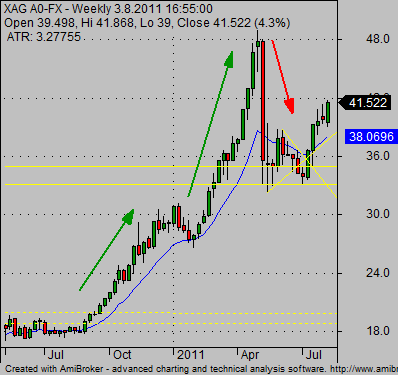How to Invest in Currency ETFs
Post on: 30 Сентябрь, 2015 No Comment

Capitalizing on Forex Movements with Currency ETFs
You can opt-out at any time.
International investors buy and sell currencies for a number of reasons, ranging from directional bets on economies to hedging against currency risk. While many institutional investors trade using foreign exchange (forex) accounts, individual investors may be best off using exchange-traded funds (ETFs) that offer exposure to various currencies. In this article, we’ll take a look at basic currency dynamics and the various types of currency ETFs available to trade.
Why Do Currencies Move?
Currency is simply a valuation instrument backed by the full faith and credit of a government and/or central banking institution. While inflation has historically driven absolute currency valuations lower over the long run, currencies regularly fluctuate relative to each other all the time. The impact of these fluctuations can be seen by consumers in exchange rates and by businesses in losses experienced from the conversion of foreign profits.
There are many factors that can influence these currency movements, including economic growth or contraction, sovereign debt levels, trade surpluses or deficits, and the price of oil and gold to a certain extent. For instance, rising gross domestic product (GDP) could result in a higher currency valuation as a country’s prospects would improve relative to other countries, while the price of gold tends to move inversely to a currency’s valuation.
Why Use ETFs Versus Forex
Exchange-traded funds (ETFs) provide investors with a simple way to gain diversified and cost-effective exposure to unique asset classes. Since they trade on regular U.S. exchanges just like a stock, investors do not require special accounts nor do they need to abide by any restrictions. ETFs also have lower turnover than many actively managed funds — since they track indexes — making them a lot cheaper than other options, particularly in obscure asset classes.
Currency ETFs replicate the movement of currencies by either holding cash deposits or using futures contracts on the underlying currency. Either way, these methods produce price action that is strongly correlated with the underlying currency with low management fees. Currency ETFs can either track individual currencies, like the euro or Swiss franc. or baskets of currencies, like a directional bet against the U.S. dollar against all major currencies.
In contrast, the forex market involves actually buying and selling currencies. Since currencies trade in just fractions of a cent, known as pips, they require a significant amount of leverage in order to trade. The increase in leverage adds to the risk of trading, since traders must ensure that they are always covering margin. Many brokers require separate accounts for foreign exchange transactions as well, making it more difficult to buy and sell currencies than ETFs.
Currency ETFs to Know
There are many different currency ETFs available in the market, including funds that track individual currencies and funds implementing complex strategies. By purchasing or short selling these ETFs, investors can position their portfolios to benefit from the relative increase or decreases in the valuation of the currencies. These dynamics can be particularly helpful when hedging the currency impacts of foreign equity investments.
Here are some popular currency ETFs provided by the two primary providers, CurrencyShares and WisdomTree (additional ETFs can be found on their websites):
- CurrencyShares Euro Trust (NYSE: FXE)
- CurrencyShares Canadian Dollar Trust (NYSE: FXC)
- CurrencyShares Swiss Franc Trust (NYSE: FXF)
- CurrencyShares Australian Dollar Trust (NYSE: FXA)
- WisdomTree Dreyfus Chinese Yuan Fund (NYSE: CYB)
- WisdomTree Dreyfus Brazilian Real Fund (NYSE: BZF)
Risks & Parting Thoughts
Investing in currency ETFs involves risks that investors should carefully consider that aren’t necessarily present in equity investments. These risks include political risk. sovereign ratings changes, interest rate changes, central bank actions, or commodity risk. While currency ETFs aren’t as volatile as the leveraged forex markets, these risks can still have a dramatic impact on an investor’s overall portfolio, if they go unnoticed.
In the end, currency ETFs provide investors with a great way to either speculate on the appreciation or depreciation of a currency or to hedge against foreign currency exposure. However, investors should keep in mind the many risk factors involved and monitor their positions to avoid taking on unnecessary risk.














